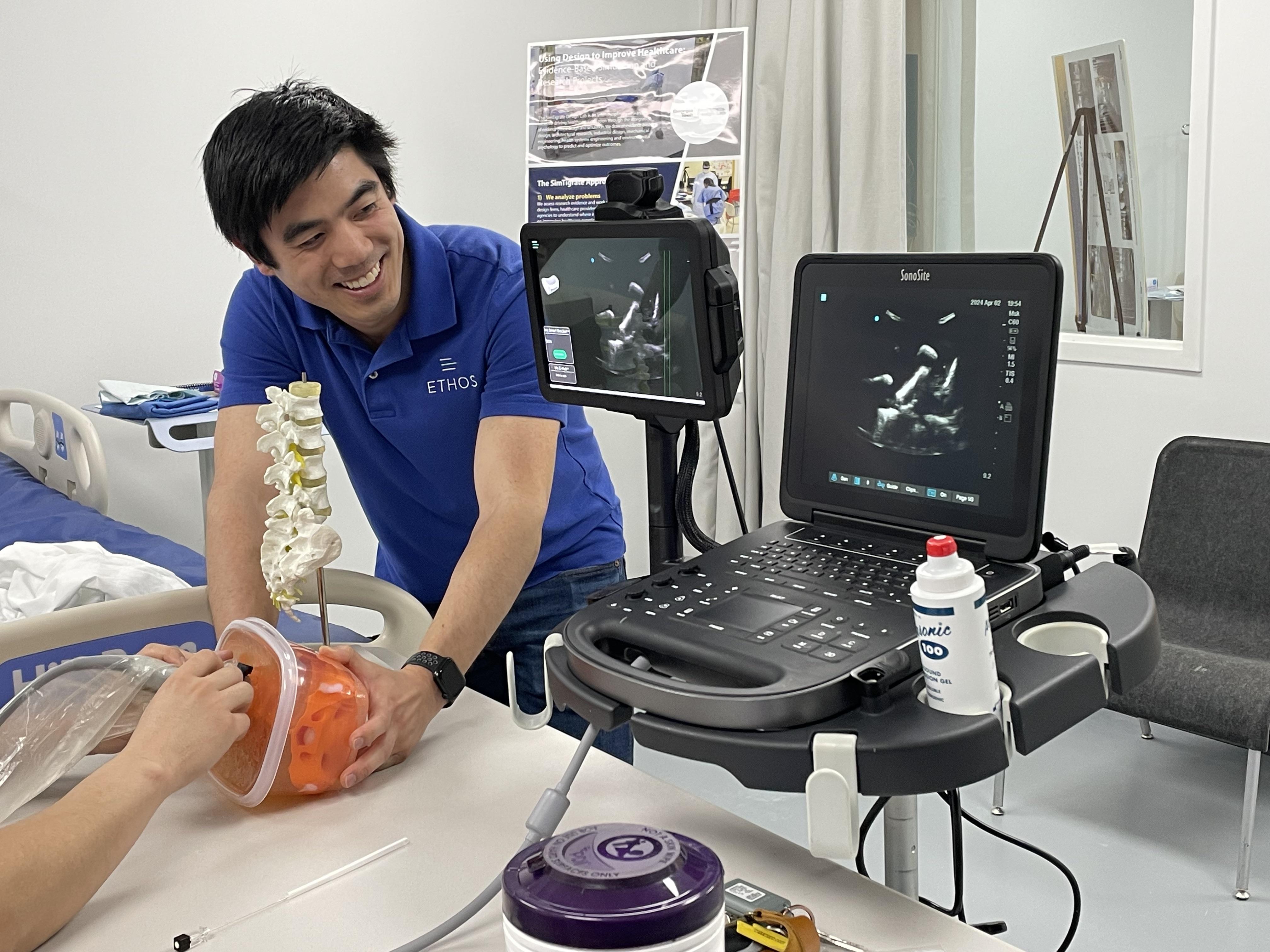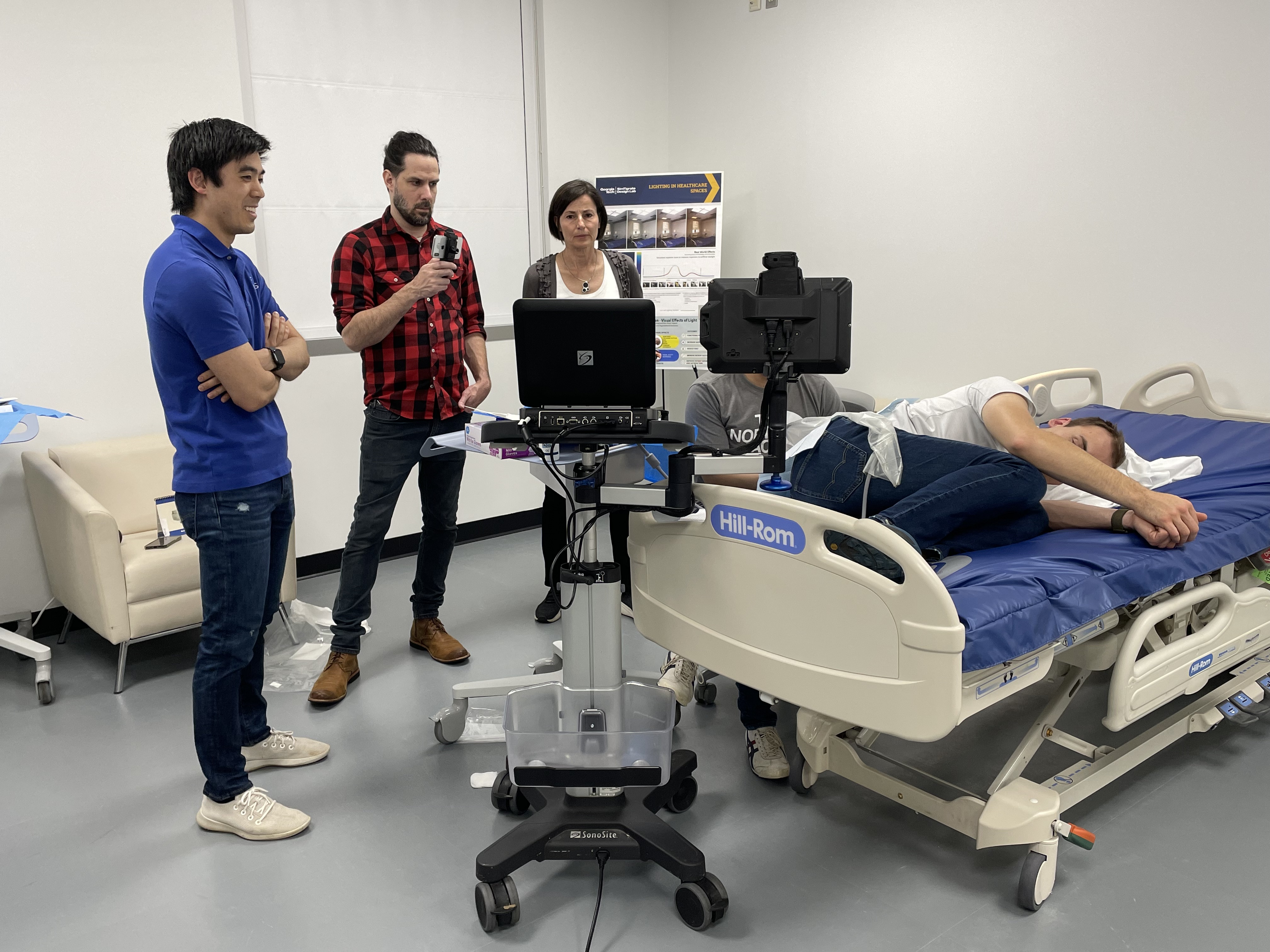L[ux] Lab Hosts Medical Device Usability Study
Apr 18, 2024 —

Cassidy Wang interacting with a physician who is testing Ethos' needle guidance system.
Ethos Medical recently made use of the College of Design’s L[ux] Lab to conduct a usability study of its needle guidance system prototype. Founded by Georgia Tech students (now alumni), Ethos Medical won the 2019 Georgia Tech InVenture Prize for their first-of-its-kind medical device.
Using ultrasound imaging technology coupled with a custom-built guidance tool, they invented a guidance system to help physicians navigate needles into the spine accurately and safely. In 2020, they were awarded a Phase I grant from the National Science Foundation’s Small Business Innovation Research program, followed by a Phase II grant in 2021.
Ethos Medical’s co-founders Cassidy Wang, CEO, and Lucas Muller, CTO, personally oversaw the study held in the Technology Square Research Building lab space, working with physicians from local hospitals to better understand the human factors of their novel device.
The study was designed and moderated by Maureen Carroll and Stephen Jones of Creature, an award-winning industrial design firm based in Atlanta.
“Creature and our engineering partner, Enginuity Works, are working to improve the design, human factors, and usability of the system. By using the L[ux] Lab and bringing in emergency room doctors, we can observe physicians using the system and evaluate how well our system integrates with their work process,” said Carroll, founder of Creature.
Several Georgia Tech students from the SimTigrate Design Lab were also present, gaining hands-on experience with the planning and execution of such a study.
Part of the study’s goals are to assess how emergency room clinicians may adapt their existing workflow for performing lumbar punctures to one that incorporates this new needle guidance system while considering realistic procedural and safety constraints. A second goal is to evaluate the ability of clinicians to accomplish specific tasks that require interaction with the user interfaces of the system and identify interfaces and interactions that they perceive to be unintuitive or difficult to perform.
The L[ux] Lab, part of the SimTigrate Design Lab space, is an interdisciplinary research lab using evidence-based design to improve the medical experience for patients and providers. SimTigrate – combining concepts of simulation and integration – grew out of the Healthy Environments Research Group which involved Georgia Tech and Emory University with the goal of improving healthcare outcomes. The lab is affiliated with the Georgia Tech College of Design and is led by Jennifer DuBose, executive director of the SimTigrate Design Lab and principal research associate in the College of Design.
“We’re fortunate that the L[ux] Lab’s simulated clinical environment is so conducive to medical device usability testing, and we’re grateful for all the support shown by Jennifer and the rest of the folks at SimTigrate,” said Wang, CEO of Ethos Medical. “We’ve already begun making improvements to address the friction points discovered during the clinicians’ hands-on interactions. We’re also seeing that many of these practitioners are excited about the capabilities our device brings to the point of care, both for lumbar punctures and beyond!”

Lucas Muller plays the role of patient as a clinician tests the needle testing system as others observe.




